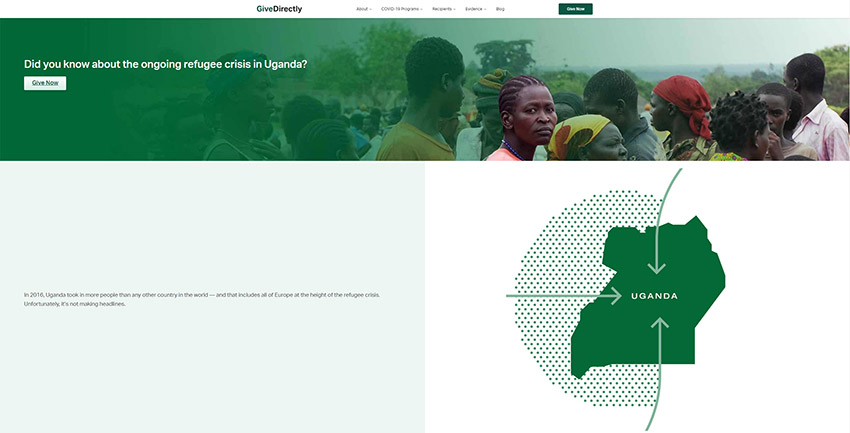Development policy
Opportunities and risks

Digital transformation has impacts on education, health, rural development, governance and economic development all over the world. These issues concern development policy. It is remarkable what a single innovation can achieve, consider, for example, the mobile banking system M-Pesa in Kenya. Digital technologies present new opportunities for development, especially in places with poor infrastructure. Digitalisation potentially makes exchange with local communities faster and cheaper.
Digitalisation can boost transparency and facilitate public participation, thus granting civil society more influence. In numerous cities – from Accra to Manila – young software programmers and entrepreneurs are joining forces to find digital solutions for local problems. Activists are using social media to take their governments to account (see article by Isaac Sagala on our Website). Countries like Mexico and Cambodia are starting open-government initiatives and disclosing more government information online. Development agencies too are calling for transparent and open structures and joining the International Aid Transparency Initiative (IATI).
But digital technologies are not just a wellspring of opportunity. They also imply risks, including unprecedented forms of dependency. That is the case, for instance, when multinational corporations such as Facebook and Google single-handedly seek to create infrastructure in the world’s poorest countries. Such action raises policy issues concerning the internet, such as, for instance, net neutrality.
Last but not least, the disclosures by Edward Snowden, a US citizen, concerning US intelligence agencies tapping private telephones show that human rights are increasingly being flouted in the digital sphere. Another example is the arrest and ongoing abuse of Raif Badawi, the Saudi blogger who made critical remarks about Islam in his blog.
Other events similarly illustrate the fine line between digital opportunities and risks. When Turkey provides Syrian refugees with biometric IDs, for example, it is facilitating the delivery of humanitarian aid. But the same data can also be used to surveil most vulnerable people under the pretext of identifying potential terrorists. Privacy rights must be considered when personal data is collected.
Progress at home
To stay credible in the eyes of partners in developing countries, development agencies must show that they themselves embrace digital technologies. Sweden, Britain and the USA made digitalisation a priority at home, implementing domestic reforms to change the way state agencies operate. These countries’ development agencies are benefiting from the trend. They have successively begun to use digital technology at home and in cooperation with partners (see box).
Germany’s Federal Government has so far only hesitatingly embraced digital change. Digitalisation is fast changing the way we live, but government offices in Germany still mostly operate in an analogue way. In the UN’s most recent international e-government index, Germany was not even among the top 20. Unlike many partner countries, Germany has not joined the Open Government Partnership, an international alliance of 69 countries that endorse a new idea of government geared to involving civil society in public affairs by making government data available online.
Only those who are open to digitalisation and use innovative technologies themselves can assess opportunities and risks. It took a while, but Germany’s development agencies now understand this truth. Last year, they took measures accordingly. One result is a tool kit designed to make agencies familiar with the most important trends and up-to-date approaches. It was designed on behalf of the Federal Ministry for Economic Cooperation and Development (BMZ). The GIZ is currently developing a holistic internal digital strategy. Moreover, the BMZ intends to increase its budget for digital projects in Africa to 55 million this year (from 53 million last year).
New partnerships and approaches
In view of fast change, it is of fundamental relevance to share experience and knowledge with other countries. It is equally important to define common standards and solutions. Not only for cost reasons, it makes sense to rely on freely available solutions such as the open data platform provided by Britain’s Department for International Development (DFID). This platform should serve as the basis for building other platforms. Reinventing the wheel does not make sense. Initiatives such as the Principles for Digital Development or the above-mentioned Open Government Partnership give scope to more and wider exchange.
Digital measures can be implemented much faster than analogue ones. They can also be declared failed faster and hence allow to start over with new and better approaches.
But actually making smart use of digital technologies that way requires nothing less than a change of culture geared to adopting more flexible procedures. In 2014, the US Agency for International Development (USAID) established a new unit, the Global Development Lab, and granted it considerable funding. Its mission is to develop more efficient and cheaper solutions, test them and – depending on the results – implement or reject them. In view of Silicon Valley’s innovative culture, it is unsurprising that a US agency should take the start-up approach. No doubt, development agencies do well to focus on (national) comparative advantages.
Digital solutions will only ever be part of the solution; they are a means to an end, and certainly not the answers to highly complex development issues in themselves. One thing is obvious, however: in view of growing budget constraints, development policymakers need innovative, more responsive and unbureaucratic ways to develop new solutions.
Balancing the risks
One must grasp the opportunities of digitalisation, but one must also control the risks. If data and IT security standards are not observed, an SMS application may fast have detrimental impacts on patients in health care for example. Involving multinational IT corporations in an education project may block the emergence of locally developed products and content. Technologies always have political implications. Good assessments and solid understanding of these implications are needed.
In this context, cooperation with research institutions or small civil-society organisations will matter very much. Some of them will prove to be better placed to respond dynamically and flexibly to the fast changing issues of digitisation than big organisations.
The Canadian government, for instance, spends a sizeable amount of money on the International Development Research Centre (IDRC), an institution that promotes research into these matters. The Dutch authorities have budget earmarks specified to support non-governmental organisations (NGOs) that work at the interface of human rights and digital liberties. One beneficiary is the Humanist Institute for Cooperation (HIVOS), a pioneering organisation committed to the protection of digital human rights.
On top of all this, capacities to assess digital solutions must be developed within the agencies themselves. Standards need to be defined prudently to ensure that digital human rights are maintained consistently in the interaction with people in partner countries for example. No doubt, the international community can benefit from Germany’s expertise in areas such as the protection of privacy or digital consumer rights. For instance, German agencies could support local NGOs in a spirit of capacity development and help to draft technical solutions and guidelines to protect privacy.
Julia Manske works at Stiftung Neue Verantwortung, a Berlin-based think tank. She specialises in the interface of development and digital policy.
jmanske@stiftung-nv.de
Sources
DFID: Digital Strategy.
https://www.gov.uk/government/publications/department-for-international-development-digital-strategy-2012-to-2015
Smith, M. L and Reilly, K. M. A., 2013: Open development. Networked innovations in international development. The MIT Press.
Hostein, G. M., Nyst, C., 2014: Aiding surveillance. An exploration of how development and humanitarian aid initiatives are enabling surveillance in developing countries. I&N Working Papers 2014/1.












